
Enjoy this third and final installment in our new mini-series of Befriending Yourself, written by Jeff Foster and Matt Licata. Ready to go deeper? Check out their new monthly online community! Get all the details here.
In our previous excerpts (which you can view the first installment here and the second installment here if you missed it!), we discussed the first four principles of befriending yourself:
- STOP TRYING TO BE HAPPY (happiness is not something you can “do”)
- TRUE MEDITATION IS NOT WHAT YOU THINK (it’s what you are)
- “ONE MOMENT AT A TIME” (this one idea could save your life)
- SUFFERING IS OPTIONAL (but sometimes pain and grief are inevitable)
Here are the final two principles on befriending yourself…
5. WORDS ARE MAGIC SPELLS (so cast them wisely!)
We can get so tangled up in concepts and words, especially heavily weighted spiritual and psychological concepts such as “awareness,” “ego,” “integration,” and even “healing.” We forget that words – no matter how subtle and profound – can never, ever capture our first-hand embodied experience. Words always come after the fact. Concepts are general and abstract, and not subtle, nuanced, specific, or concrete enough to match the sheer uniqueness of what you are experiencing in one here-and-now moment.
Does the word “flower,” the idea of it, really capture the sheer inner mystery of a flower? Does the word “anxiety” really begin to capture the sheer LIFE surging through the body in a given moment?
For example, rather than saying to yourself, “I’m anxious,” (or scared or angry or lonely or bored, etc.), as an experiment, try dropping the word, and attuning to the actual lived experience you are encountering in the moment, which will be very unique for you. In other words, come out of the mind and its thoughts and ideas and judgements and stories and negativity about anxiety, and come back to your body in the present moment. Be a beginner. Meet the moment as if you didn’t know anything about anxiety, but wanted to connect with it for the first time. It is this “Beginner’s Mind,” as they say in Zen, that is the wellspring of meditation.
Ask yourself, “How do I know I’m anxious? What is my lived experience of anxiety? Where do I feel what I call “anxiety” most strongly in my body, RIGHT NOW? What is happening in my belly, chest, throat, head, RIGHT NOW? Can I begin to bring attention to the raw sensations in my body, without judging them, without trying to get rid of them, without trying to escape them or make them go away?”
What kind of sensations do you notice? Are they fluttering, pulsating, throbbing? Are they moving fast or slow? Do they feel shallow or deep in the body? Are they warm or cold? Are they intense or gentle? Are they moving in straight lines, circles, zig-zags? Are they sharp or dull? How far under the skin are they? Do they change when you bring awareness to them? Do they become more intense? Less intense? Do they expand or contract? Do they start moving around in the body?
Can you become curious about all this life in your body, without trying to fix or change it? Feel or imagine your breath moving into the sensations, so you are bringing the warmth of your presence and the gentleness of your breath to this contracted, aching, sore place. Perhaps this is just a part of your body that is starved of attention and oxygen. Breathe into that place that feels tight, contracted, bound-up. This is an act of love.
Say to yourself, “These are just sensations. They are just the intelligence of the body. They are not dangerous. They are just LIFE. They are not hurting me. They are not working against me. They are not a mistake. They are not a sign that there is something wrong in this moment, or that I have failed in some way. They are just parts of me longing for love and kindness. They are the abandoned parts, the parts I need to take care of right now..”.
Scientific research over the last couple of decades in the area of mindfulness and self-compassion suggests that courageously bringing curious, accepting, non-judgemental present-moment attention to sensations in our body, even if they are intense and uncomfortable (and therefore “unwanted”), can soothe our nervous system’s more urgent fight-or-flight response and help us to access the slower, empathic circuitry of the prefrontal cortex. Slowly, over time, we can build tolerance for difficult experience, come to discover its ultimate workability, and eventually use our hooks, triggers, and activations as invitations into deeper holding and compassion for ourselves and others. We can come to realise that feelings and sensations in our bodies are ultimately safe, even if they feel unsafe.
What is happening inside you is unique, unprecedented, vast, and majestic, and will never be captured by experience-distant concept words like “unworthy,” “anxious,” or “ashamed,” which – if you think about it – are all other people’s words, given to you when you were young, or by the medical community, or by a culture who has fallen out of touch with the wisdom of raw experience. There is a world before words, before the mind itself. And in that world, you may find the peace and wholeness you seek.
Even if the intensity of sensation does not diminish with our kind and curious attention, that intensity begins to occur in a much vaster space, in a larger context, one that is warmer, more open, and safer than we imagined. Instead of being caught up inside a feeling or mood or bundle of sensations, we recognise that these energies are actually caught up in us. We are actually bigger than any thought, sensation or feeling. We can begin to hold our fear and boredom and sorrow, so they don’t hold us. We are not the victims of our anger and confusion, we are the space for them, the vast open sky in which they can come and go. Some call this space Awareness, but we could also call it Love. Or Who You Really Are.
6 THE SECRET OF “HOLDING, NOT HEALING” (“negativity” as a call for love)
Imagine or visualise a difficult thought, feeling, urge, or emotion as a child knocking at your door. Allow your challenging present experience to take form, imaginatively, as a young child (or other figure) that you can enter into a relationship with.
If you are feeling sad, for example, imagine a sad child arriving at your door and knocking, wanting to come in. Perhaps they are cold, confused, shaking, and exhausted from a long journey. They have not come to harm you in any way, but just to be held, to be allowed back home, into the warmth of your heart. Once inside, we can sit with them and have a conversation: Why have you come? What do you need? What do you want to show me? We can listen to the wisdom they have to share, and help them to release any burden they have had to carry on our behalf.
How would you respond to this frightened little one when you opened the door?
Would you slam the door in his or her face and distract yourself with TV or food (or even spiritual beliefs and practices) and try to forget them? Would you lock the door? Would you look sternly at them and state that they are welcome to come in… once they have changed? Once the sadness has been transformed to joy, the anxiety to calm, the uncertainty to clear-knowing… ah, then yes you can enter?
Or would you allow this one in to the living room of your own heart, Now, where you can listen and tend to them with curious, loving awareness? Would you open your arms wide to them, and let them come home?
It can be helpful to turn a difficult thought, feeling, memory, urge, or impulse into a figure with which you can dialogue or have a conversation. Doing so allows us to open our hearts to our pain, our emotions, and our experience rather than relate to it merely conceptually or from a distance. It’s not easy or natural to cultivate a caring, interested, warm relationship with a concept, such as “grief,” “shame,” or “rage.” But to meet a grieving child, or figure who is ashamed or enraged, we can more naturally move closer to them, listen to them, open a dialogue with them, and bring movement into our experience where maybe it had become stuck. Rather than becoming flooded or swallowed up by this energy, imaginatively allow it to form in front of you where you can ask it why it has come, what it needs to show you, what it wants. This is how you can begin to reclaim your power in the face of a scary, uncomfortable, unknown, or difficult energy. See it as a lost and helpless and forgotten part of you, looking for your help, seeking love, not an enemy or a dangerous force from outside of you.
“Befriending” is not as much about “healing” as it is “holding.” In true befriending, we do not have a heavy agenda to change, shift, fix, cure, transform, or, surprisingly, even “heal” this energy. From this perspective, we are never “unhealed” or “untransformed”, really. We are not a project to be improved, but a mystery coming into form, moment by moment. We are always whole, even in moments of intensity and discomfort. We were never not whole (healed).
By “holding” our experience in any moment instead of rushing to try and fix it or run from it, we are inviting relationship with the present “visitors” – the thoughts, feelings, images, and impulses – that have come in a moment of activation, without falling into the extremes of either denying or repressing them on one hand, or becoming fused with or flooded by them on the other. We disentangle a bit from them so that we can enter into loving relationship. We can practice a certain kind of intimacy with them, but without fusing or identifying, or drowning in thoughts, feelings, and sensations. We can dialogue with them and even have boundaries with them, letting them know of our intention to move toward them, but only in a way and at a pace that works for us. We can take back our power from the ‘dark’ material within.
In our own unique ways, through experimentation and curiosity, we discover a sacred middle place between repressing a thought or feeling, or habitually and unconsciously expressing it or acting it out. In this middle place, this third possibility, we slow down, and breathe, and infuse the visitor with curiosity and loving breath:
“I am here to meet with you, to hold you, to listen to you, to care for you. But not to be flooded or fused with you. Let us be true friends. I trust that you are just a part of me, needing love. I want to get to know you, moment by moment. This is a beginning, not an end…”
Remember this image of holding in moments of activation and overwhelm, in both its personal and transpersonal dimensions. We can hold ourselves and parts of ourselves when we are triggered and hurting, but we can also relax into a kind of Sacred Holding that is always, already happening through something greater than us. We are holding and we are already being held – by the Earth, by the sky and the mountains and forests and oceans, by the Universe itself, by the Loving Mystery that is every living thing.
Even in the moments we feel we cannot “hold” ourselves, we are already being held by Life. Even in the moments the present moment feels “unbearable,” Life is bearing us. This is the true definition of surrender. It is not something we can understand with the mind.
Ultimately we do not “do” healing. Healing is “done” to us in the moment where we stop struggling against life and our own thoughts and feelings and relax into the Mystery.
As we let go of the inner war with our experience, soften into this instant of life and open our heart and being to what’s here – even if what’s here is uncomfortable, raw, scary, and intense – we are no longer victims of the moment, but become the infinite and victorious Power that allows the moment to be, the Calm in the midst of life’s storm.
Our power lies not in refusing the moment, but softening into it. There is strength in our vulnerability, power in our willingness to open our arms to whatever the moment brings.
Thank you for reading this series on the mysterious dance of being and befriending! Our words are intended as “fingers pointing to the moon,” as they say in Zen. You will find your own way into the vastness and sheer mystery of your experience. May you honor your wildness, your individuality and eccentricity, as you take your own unique journey to the Home you never left. We hope these words have helped point you in the right direction… one that leads back to YOU.
As Rumi reminds us…
“There are hundreds of ways
to kneel and kiss the ground.”
We hope you enjoyed our new mini-series of Befriending Yourself, written by Jeff Foster and Matt Licata.Ready to go deeper? Check out their new monthly online community! Get all the details here.
ABOUT THE AUTHORS
JOIN JEFF FOSTER AND MATT LICATA EACH MONTH IN THEIR NEW “BEFRIENDING YOURSELF” MEMBERSHIP SITE: www.befriendingyourself.com

MATT LICATA
Matt Licata, PhD is a psychotherapist, writer, and independent researcher based in Boulder, Colorado. Over the last 25 years, he has been active in the ongoing dialogue between depth psychological and meditative approaches to emotional healing and spiritual transformation.
His psychotherapy and spiritual counseling practice has specialized in working with yogis, meditators, and seekers of all sorts who have come to a dead-end in their spiritual practice or therapy and are longing for a more embodied, creative, imaginative way to participate in their experience, in relationship with others, and in the sacred world.
Matt’s spiritual path and exploration has been interfaith in nature and includes three decades of study and practice in Vajrayana Buddhism, Sufism, Daoism, and Contemplative Christianity. His psychological training and influences have been in the larger field of relational psychoanalysis, Jung’s analytical and alchemical work, and Hillman’s archetypal psychology, to name a few. He is the editor of A Healing Space blog and author of The Path is Everywhere: Uncovering the Jewels Hidden Within You (Wandering Yogi Press, 2017) and the forthcoming A Healing Space: Befriending Yourself in Difficult Times (Sounds True, 2020). His website is www.mattlicataphd.com
JEFF FOSTER
Jeff Foster studied Astrophysics at Cambridge University. In his mid-twenties, struggling with chronic shame and suicidal depression, he became addicted to the idea of “spiritual enlightenment” and began a near-obsessive spiritual quest for the ultimate truth of existence. The search came crashing down one day, unexpectedly, with the clear recognition of the non-dual nature of everything and the discovery of the “extraordinary in the ordinary.” Jeff fell in love with the simple present moment, and was given a deep understanding of the root illusion behind all human suffering and seeking.
For over a decade Jeff has been traveling the world offering meetings and retreats, inviting people into a place of radical self-acceptance and “Deep Rest.” He has published several books in over fifteen languages. His latest book is The Joy of True Meditation: Words of Encouragement for Tired Minds and Wild Hearts (New Sarum Press, 2019). His website is www.lifewithoutacentre.com





 Jeff Foster
Jeff Foster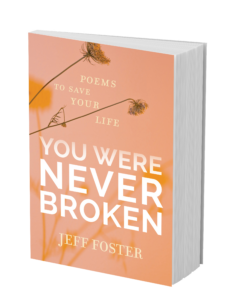
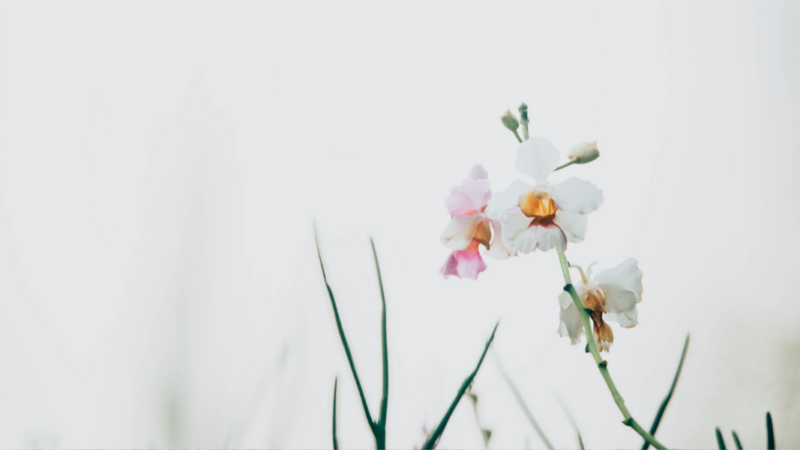
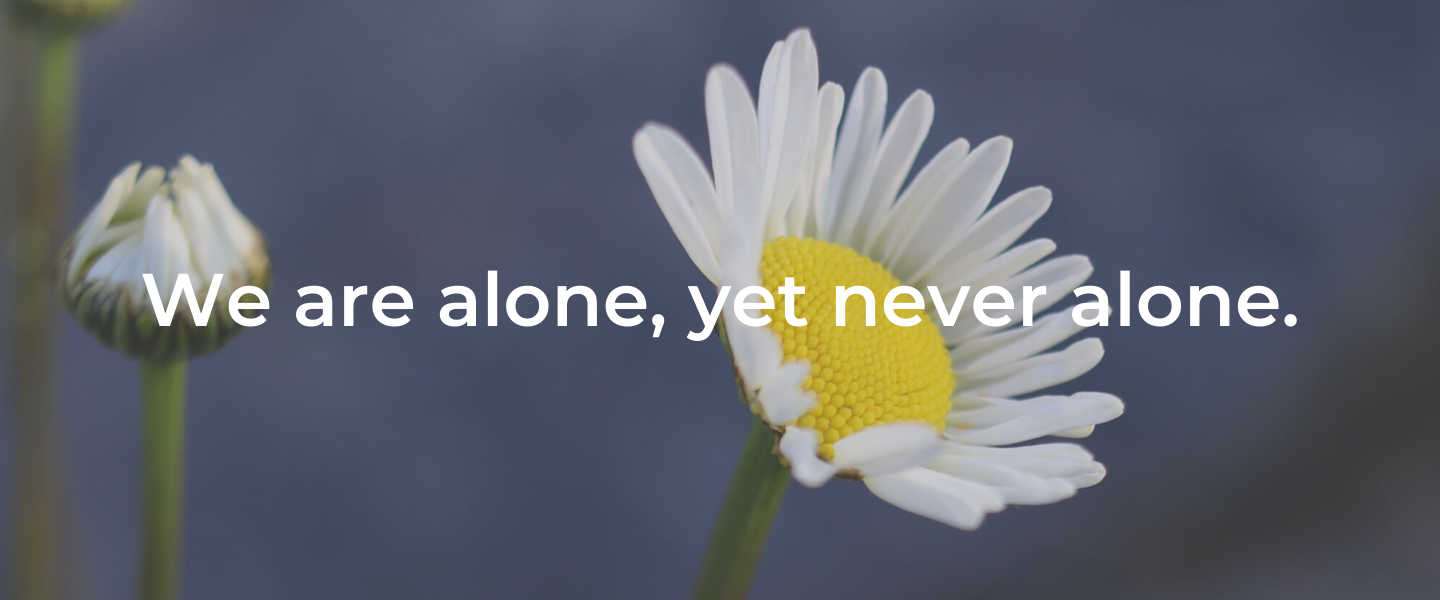
 Jeff Foster
Jeff Foster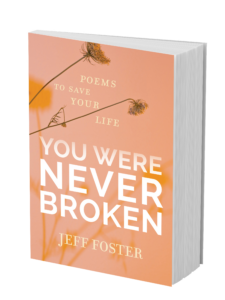
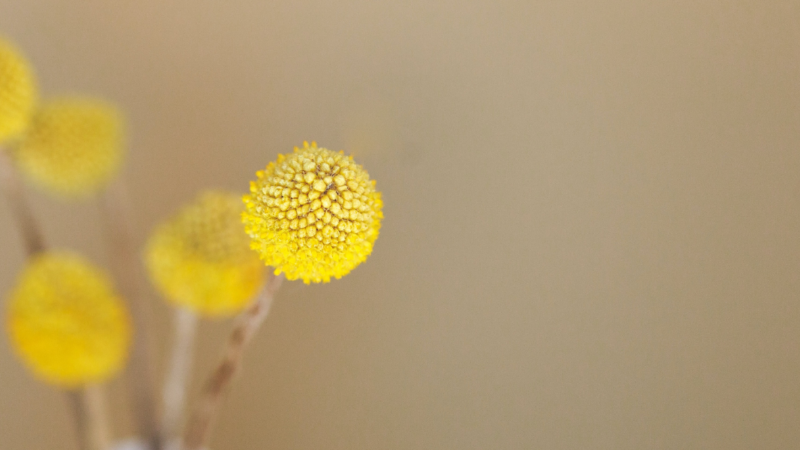



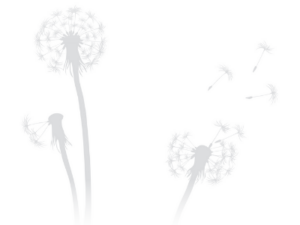
 Jeff Foster
Jeff Foster





